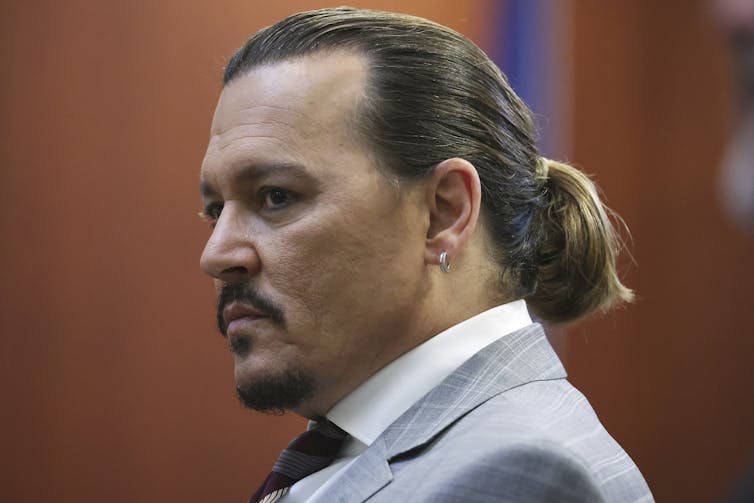Table of Contents
Alexandra Lysova
Simon Fraser University
Alexandra Lysova is a criminologist with the research interests in intimate partner violence, male and female perpetrators and victims, spousal homicide, and cross-cultural studies of violence.
The Johnny Depp v. Amber Heard defamation trial has touched a chord with many people when it comes to gender and intimate partner violence. Headlines throughout the trial showcased drastically different opinions on the potential ramifications of the verdict for victims of intimate partner violence and the fate of the #MeToo movement.
Some declare “the death of the MeToo movement” and an “orgy of misogyny” arguing Heard was punished for her stance as “a public figure representing domestic abuse” and for coming forward against a powerful male celebrity.
Certain advocates and experts fear this verdict will silence women coming forward with abuse claims and embolden perpetrators. While others claim a “big victory in the battle against cancel culture” and a turning point for male victims of domestic abuse.
As a scholar who has been studying intimate partner violence for over 15 years, I consider this case to be a crucial turning point in the public discussion of intimate partner violence because it has shed light on hidden forms of intimate partner violence and men who are victims of it. But I also don’t think the verdict will harm the #MeToo movement or female victims of abuse as some fear.
Bidirectional violence
Depp v. Heard highlighted bidirectional violence, a largely unspoken about issue in intimate partner violence, which occurs when a person in the relationship reports both perpetrating and experiencing violence.
Both Depp and Heard accused each other of physical violence and claimed to be victims of abuse — the couple’s former psychotherapist, Laurel Anderson confirmed they were engaged in mutual abuse.

Bidirectional violence is in fact the most common pattern of abuse in intimate relationships — 58 per cent of couples in abusive relationships experience it. And the impact of the bidirectional violence can be very serious, including injury and mental health problems for both partners.
But media pays much more attention to unidirectional men’s violence against women. The Depp v. Heard case calls attention to the toxic bidirectionality of abuse, which highlights the need for awareness of the problem so we can prevent it happening in the future.
This case also brings attention to women’s use of violence in intimate relationships. In video testimony, Anderson revealed that Heard initiated physical violence in trying to prevent Depp from leaving the room. Depp also accused Heard of cutting the top of his finger by throwing a vodka bottle at him.
Despite these revelations, it is important to remember that women are much more likely to become victims of the most serious intimate partner violence, including homicide.
Male victims and their experiences of abuse
Depp coming forward and speaking out against Heard will likely impact many men who experience female-perpetrated intimate partner violence. Contrary to the commonly held myths and stereotypes that “real men” cannot be abused by their partners, recent population surveys find comparable rates of intimate partner violence victimization among men and women.
For example, the 2015 National Intimate Partner and Sexual Violence Survey in the United States found that about one in three men and women (34 per cent of men, 36 per cent of women) reported experiencing intimate partner violence — including sexual violence, physical violence or stalking.
And in 2019, I led a study that found that more men than women reported being victims of intimate partner violence in Canada. Also, men seemed to stay in abusive relationships longer than women with 2.9 per cent of men and 1.7 per cent of women reporting abuse in ongoing relationships.

There are barriers to men seeking help when they are being abused. A study I was a part of in 2020 focused on abused men in four different countries and found that many did not recognize or call what happened to them abuse — they were “blind to the abuse.”
Other barriers were notions of “manliness” (being a victim may be seen as unmanly), trying to “fix” the relationship, protecting children and simply because they had nowhere to go for help. The Depp v. Heard trial revealed many of these barriers as Heard warned Depp that the jury and world would not believe him.
No harm to #MeToo and female victims of abuse
Despite the verdict, which largely vindicated Depp, I believe this case will not negatively impact the #MeToo movement and women coming forward with their claims of abuse. Heard, who had a credibility problem in court, is not representative of all female victims of abuse.
As Neama Rahmani, president of West Coast Trial Lawyers, argued, “Instead of being the face of the #MeToo movement, she’s the face of a false accusation.”
#MeToo is a powerful social movement that is unlikely to be challenged by any specific case, even between celebrities. It’s the #MeToo’s mission to remove systemic barriers that prevent abused women from being heard and taken seriously. And millions of people closely watched how seriously victims of intimate partner violence were treated throughout the case and how thorough the jury was.
Contrary to certain advocates’ concerns, the Depp v. Heard case is likely to contribute to a renewed confidence in all victims of abuse — not only women but also men — and in a justice and jury system.
This case dispels many myths about intimate partner violence as some people, possibly for the first time, saw a man openly reveal how he was abused, falsely accused by his female partner and how it affected his life, family and career.
We saw and heard a woman share painful experiences of victimization, and whose claims were only partially supported. I’m certain this case will continue to be discussed in the media and academia and will shape society’s understanding of the complexities of intimate partner violence.
Alexandra Lysova, Associate Professor of Criminology, Simon Fraser University
This article is republished from The Conversation under a Creative Commons license. Read the original article.









